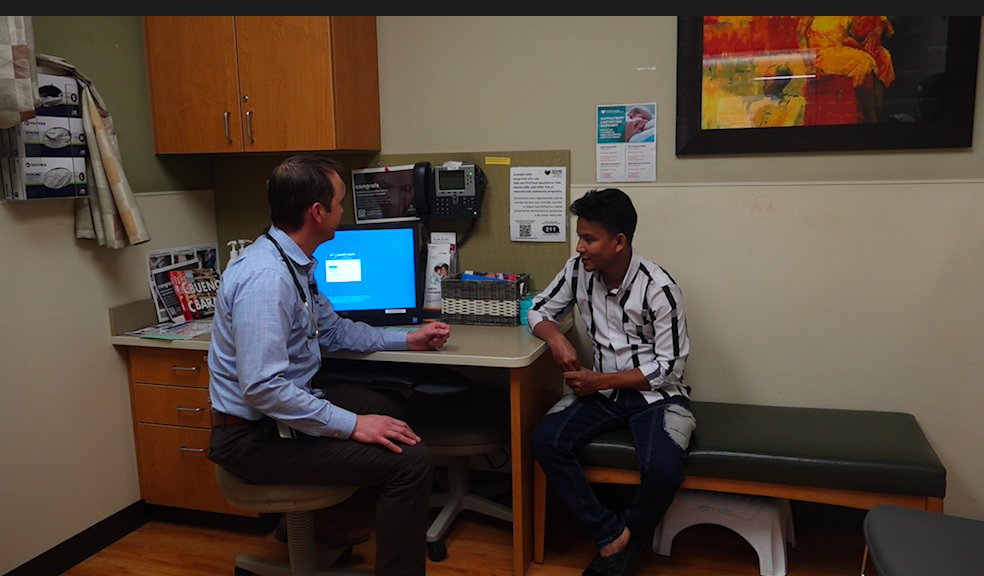Surgical sexism in Canada: study finds doctors paid less for reproductive surgeries on women

A recent study found a gender pay gap in Canada’s reproductive health-care system.
Doctors in eight provinces who perform genitourinary (reproductive and urologic) procedures on female patients are paid 28 per cent less on an average than those who do similar surgeries on male patients.
Saskatchewan has the largest discrepancy of the eight provinces, at 67 per cent, followed by B.C. at 61 per cent and Yukon at 41 per cent.
Joanne Sivertson, the provincial department head for Obstetrics and Gynecology (OB-GYN) in Saskatchewan, said the numbers are disappointing, even though she is desensitized to gender disparities.
“It is demeaning, It is demeaning to women,” she said.
As part of the study, which was published in the Canadian Journal of Surgery on July 4, researchers looked at similar procedures done on both male and female reproductive organs. For example, surgeons get paid more for doing a biopsy of male genitalia versus female genitalia, even though it is essentially the same procedure.
Michael Chaikof, one of the authors of the study and an OB-GYN and urogynecologist at Sunnybrook in Toronto, called it double discrimination.
“Not only are women surgeons paid less on average, but surgeons who look after women are also paid less,” Chaikof said. “If you look at our field of gynecology … the majority of surgeons in our specialty are women.”
Sivertson said this discrimination stems from historical policies. Care for women has been undervalued for decades and pay increases are done by percentage, she said. Policymakers continue to perpetuate that under evaluation and it will take a large correction to get on par with care for men, Siverston said.
Sivertson said that when she was a medical student, a male OBGYN who was her teacher made a comment that still makes her feel outraged.
“He said it was a tragedy that only women were entering obstetrics and gynecology, because the profession would lose all credibility.”
She said that it is unacceptable that such attitudes prevail to this day.
In some cases, a similar procedure will be more difficult or dangerous on a woman, but still pay less. Sivertson mentioned a procedure where an ovary or a testicle twists on itself and needs to be untwisted.
“To untwist an ovary you have to go into the abdominal cavity, so it’s a much more risky surgery and more complex surgery, and it is paid at 50 per cent less than what untwisting a testicle will pay.”
Sivertson said that recognizing these disparities is the first step toward fixing them. She wants to see more resources put into women’s care.
“We continue to struggle to provide basic women’s health services in the province,” she said.
Chaikof said he hopes the study will push provincial medical associations to look at their fee schedules through a gender equity lens, and empower surgeons to go to governments and advocate for gender equality.
Saskatchewan Medical Association (SMA) president Dr. Annette Epp said that once the fee for a procedure is set at a low rate, it is hard for it to catch up.
“It is unfortunate and certainly not acceptable that Saskatchewan is lagging the most in this country. But in terms of how the fee structures happen, it is quite a complicated process,” Epp said.
She said that the SMA plans to address the issue and discuss the disparity through a lens of gender equality.
“I would say that it sends a message that perhaps women’s health isn’t as valued and that needs to change,” Epp said. “I think as a society and as a profession, we have to recognize that there are disparities in outcomes between women and men, and that needs to be corrected.”
The Saskatchewan Ministry of Health sent CBC a statement in response to an interview request.
“Physicians directly bill the government for each insured service they provide (e.g. physical exam, surgery, immunization) in accordance with the approved payment schedule,” the ministry statement said.
“The ministry and the Saskatchewan Medical Association are working toward modernization of the payment schedule to ensure consistent, equitable, and appropriate payments to practitioners for the provision of insured health services.”




